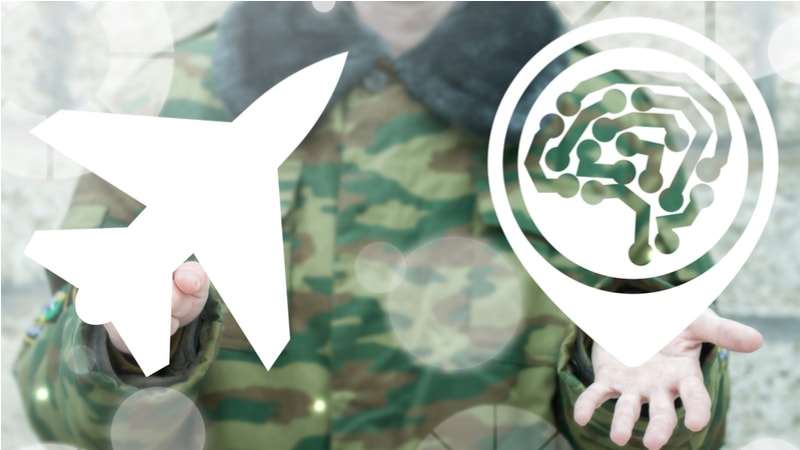
Pentagon officials have been pretty clear about their belief that artificial intelligence is changing the game for military operations, saying that AI will penetrate “every corner” of the Department of Defense (DoD), in the words of Brendan McCord, head of machine learning at the Defense Innovation Unit. DoD Chief Information Officer Dana Deasy lists AI among his four most important strategic areas. Defense Secretary James Mattis reportedly pushed for a “whole of country” approach earlier this year as the White House was announcing its Select Committee on Artificial Intelligence.
DoD recently launched its Joint Artificial Intelligence Center to coordinate the approximately 600 AI projects that the Pentagon currently has under way, with an eye toward developing new initiatives. The Defense Advanced Research Projects Agency just put up $2 billion to stimulate development of “third wave” technologies under its AI Next program. The military services and DoD components also have other AI projects of their own, often being developed cooperatively with industry and academia.
What kind of AI projects is DoD pursuing? While the agency is expectedly exploring areas like speech and image recognition, cybersecurity, logistics, and financial management, it’s also taking AI into the weeds of military operations. The Army recently named the winners of a competition for AI and machine learning tools that offers another example of how the military is looking to develop next-generation technologies, as well as how far into those corners of military operations it can extend AI.
The service’s Rapid Capabilities Office (RCO) staged the Army Signal Classification Challenge to look for the best AI and machine learning algorithms for quickly and accurately classifying “blind”–that is, previously unknown–radio frequency signals, which could be friendly, or belong to the enemy, or be spoofed, or just be noise. The goal is to lighten the cognitive load for electronic warfare soldiers who currently have to perform a time-consuming and labor-intensive process of sorting through all those signals in the electromagnetic spectrum, which is becoming steadily more crowded with signals from satellites, radars, phones, and other devices.
The challenge, which was open to any organization or groups of individuals, drew participation from 150 teams representing industry, universities, research labs, and government. RCO gave each team training the datasets 90 days to develop their models, and then two more test datasets to show what they could do. Team Platypus from Aerospace Corp., a Federally funded research and development center, took the $100,000 first prize. TeamAU, consisting of Australian data scientists, won the $30,000 second-place prize. ThunderingPanda from Motorola Solutions took home third place and $20,000.
If that sounds a bit like inside-baseball, that’s because it is. But it also shows what DoD officials mean by AI affecting every corner of operations. Some of DoD’s projects, such as Project Maven, are high-profile and longer running (and in Project Maven’s case, controversial). The military is also broadly looking at applying AI to sharpen its skills in areas such as modeling, simulation and training, electronic warfare, and information warfare. But the Army and other services also are looking to use AI for quickly developed, inexpensive solutions to specific problems, often using competitions to get there.
“In doing this as a challenge, instead of a traditional Request for Information, we were really modeling what industry does to get at a problem quickly,” said Rob Monto, RCO’s Emerging Technologies director. The challenge, which took less than four months, didn’t place a heavy cost burden on participants, established mathematically the best initial step toward using AI for signal classification. “Now we have a very accurate, very rapid algorithm for a specific problem set,” Monto said. “With this research done on the front end, we can move forward with trying to build and integrate it into a real solution for the Army.”
